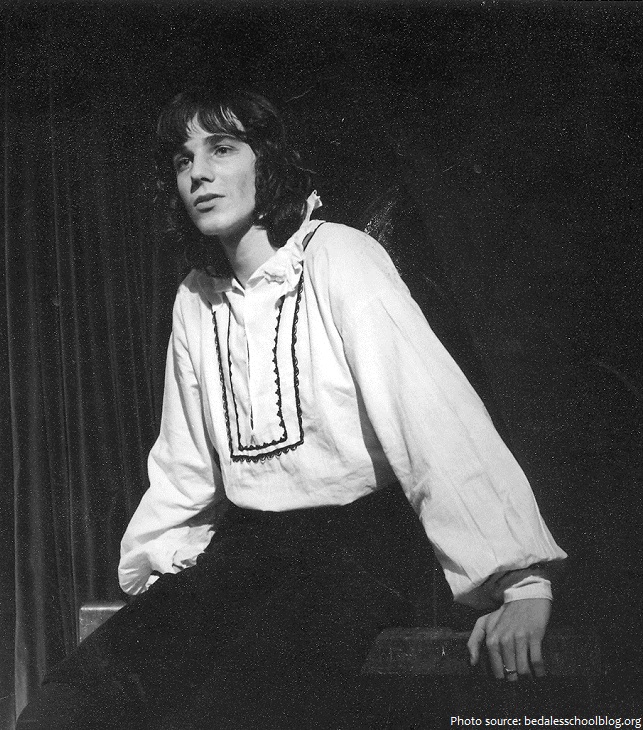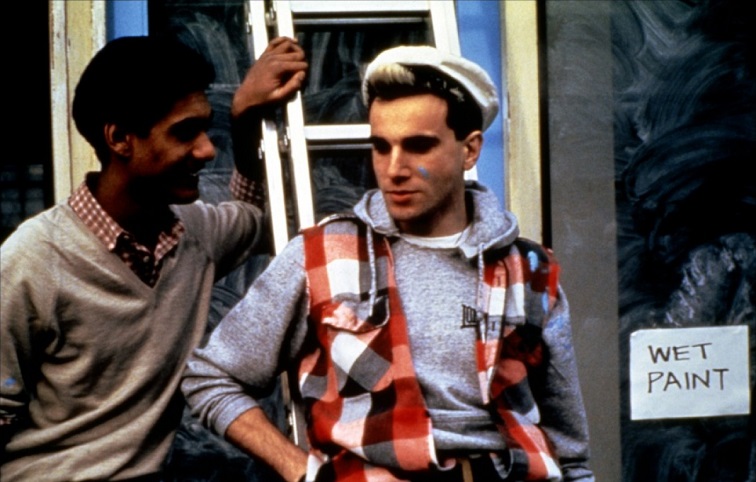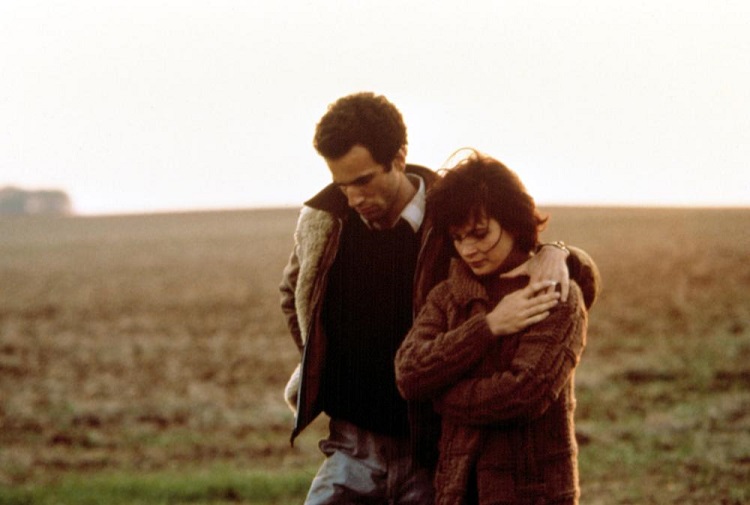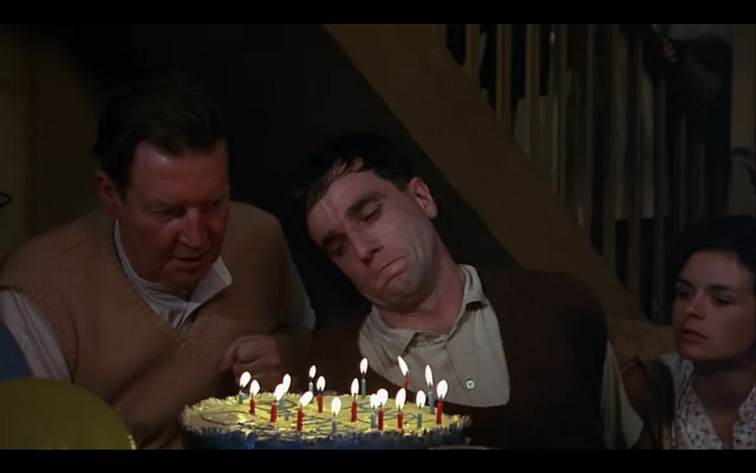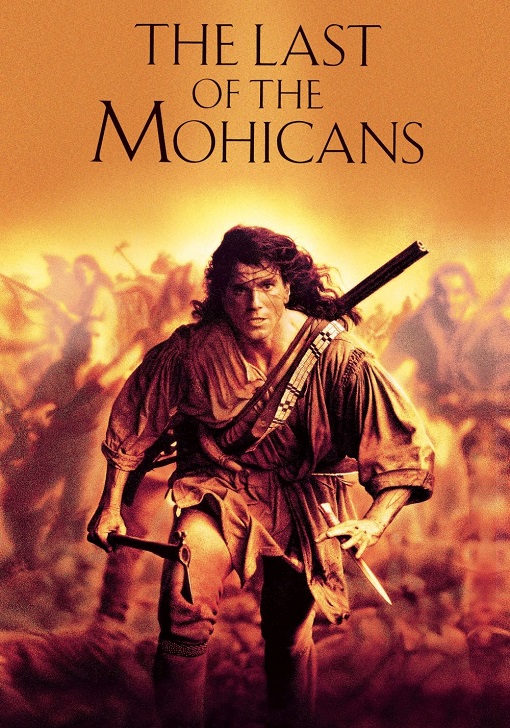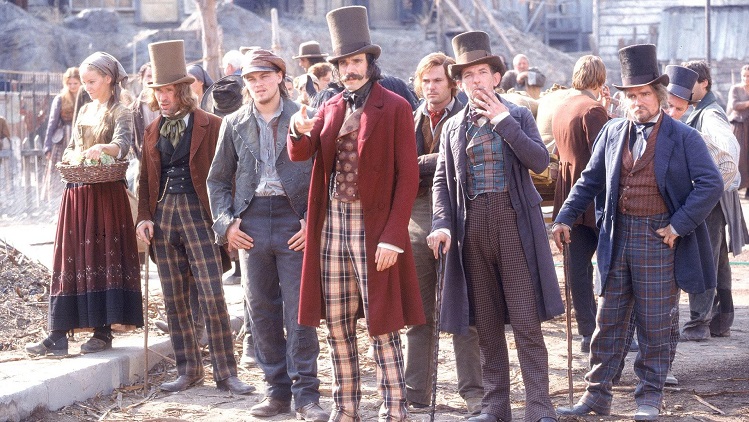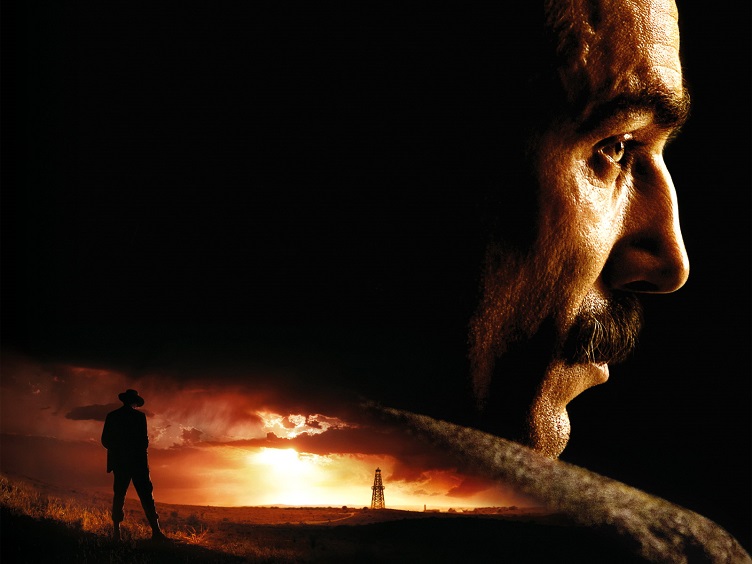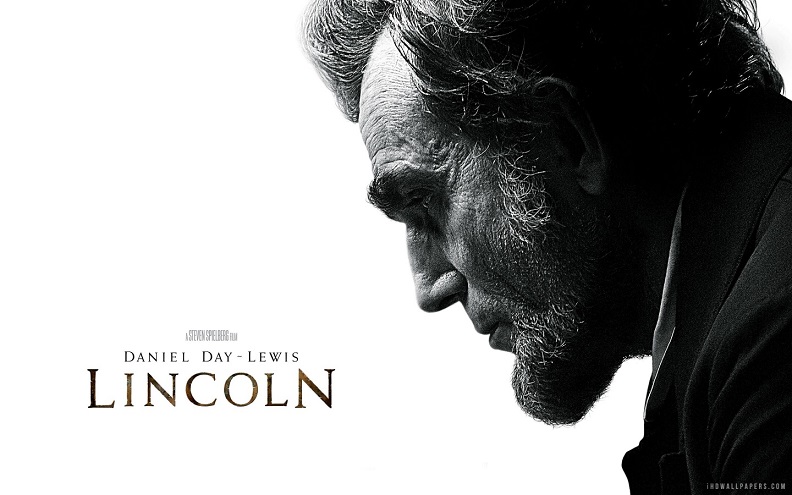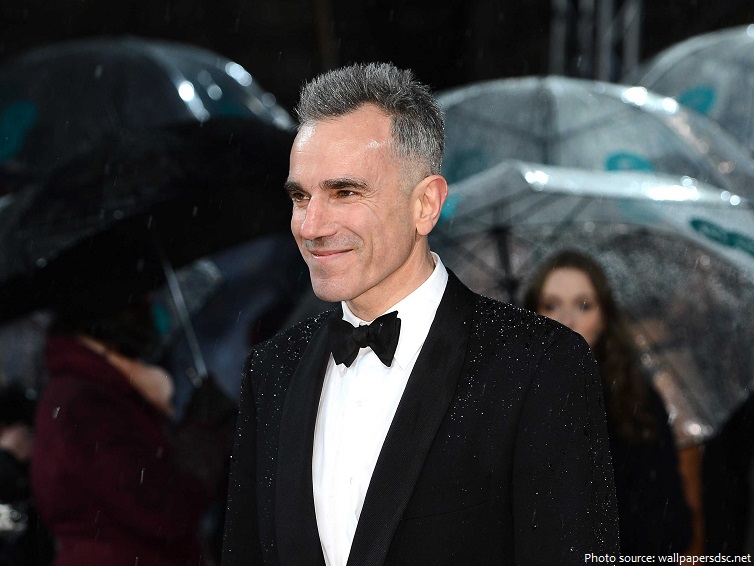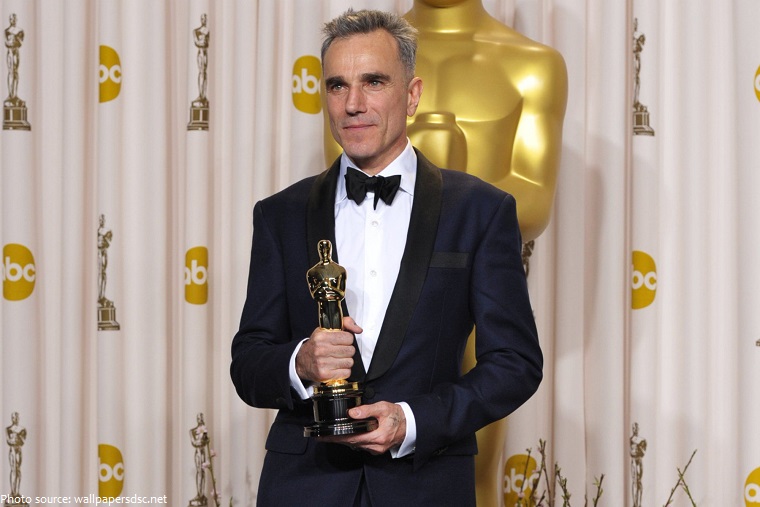Daniel Day-Lewis is an English actor who holds both British and Irish citizenship.
His full name is Daniel Michael Blake Day-Lewis.
Daniel Day-Lewis was born on April 29, 1957 in London.
His father, Cecil Day-Lewis was a poet and his mother Jill Balcon was an actress.
Daniel has an older sister, Tamasin. She is a documentary filmmaker and television chef.
His mother’s family were Jewish immigrants (from Poland and Latvia), and his father was of Northern Irish and English descent.
His maternal grandfather was Sir Michael Balcon, an important figure in the history of British cinema and head of the famous Ealing Studios.
Daniel was educated at Sevenoaks School in Kent, which he despised, and the more progressive Bedales in Petersfield, which he adored.
He began acting at Bedales and at age 13 he landed a small role in the film Sunday Bloody Sunday (1971).
He studied acting at the Bristol Old Vic Theatre School.
Day-Lewis made his legitimate stage debut in 1982, and shortly afterward appeared in small roles in two films Gandhi (1983) and The Bounty (1985).
In 1985, Day-Lewis gave his first critically acclaimed performance playing a gay man in an interracial relationship in the film My Beautiful Laundrette, set in 1980s London during the period when Margaret Thatcher was Prime Minister.
He gained further public notice with A Room with a View (1985).
In 1987, Day-Lewis assumed leading man status when he starred opposite Juliette Binoche in The Unbearable Lightness of Being. To prepare for the role, Day-Lewis learned Czech, and he subsequently stayed in character for the entire eight-month shoot.
Day-Lewis threw his personal version of method acting into full throttle in 1989 with his performance as Christy Brown in Jim Sheridan’s My Left Foot. During filming, he refused to break character. Playing a severely paralysed character on screen, off screen Day-Lewis had to be moved around the set in his wheelchair, and crew members would curse at having to lift him over camera and lighting wires,all so that he might gain insight into all aspects of Brown’s life, including the embarrassments. Crew members were also required to spoon-feed him. This role garnered him numerous awards, including the Academy Award for Best Actor and BAFTA Award for Best Actor.
Than he returned to the stage to work again with Eyre, as Hamlet at the National Theater, but was forced to leave the production close to the end of its run because of exhaustion, and has not appeared on stage since.
He took a hiatus from film as well until 1992, when he starred in The Last of the Mohicans (1992). For this role Day-Lewis learned to live off the land and forest where his character lived, camping, hunting and fishing. He also added to his wood-working skills and learned how to make canoes. This film met with mixed reviews but was a great success at the box office. For this role.
His second Academy Award nomination was for his performance in the popular In the Name of the Father (1993) in which he played Gerry Conlon, one of the Guildford Four who were wrongfully convicted of a bombing carried out by the Provisional IRA. He lost 30lbs (13.6 kg) for the part, kept his Northern Irish accent on and off the set for the entire shooting schedule, and spent stretches of time in a prison cell.
Day-Lewis returned in 1993, playing Newland Archer in Martin Scorsese’s adaptation of the Edith Wharton novel The Age of Innocence. To prepare for the film, set in America’s Gilded Age, he wore 1870s-period aristocratic clothing around New York City for two months, including top hat, cane and cape.
His next project was in the role of John Proctor in father-in-law Arthur Miller’s play The Crucible (1996), directed by Nicholas Hytner. During the shoot he met his future wife, Rebecca Miller, the author’s daughter.
After appearing in The Boxer (1997), Day-Lewis took a break from acting and worked for a time as a cobbler’s apprentice in Italy.
After a five-year absence from filming, Day-Lewis returned to act in Gangs of New York (2002), directed by Scorsese. While filming, he was never out of character between takes (including keeping his character’s New York accent). His performance in this film earned him his third Academy Award nomination and won him his second BAFTA Award for Best Actor in a Leading Role.
He subsequently starred in the intimate The Ballad of Jack and Rose (2005), which was written and directed by his wife Rebecca Miller.
In 2007, Day-Lewis starred in director Paul Thomas Anderson’s loose adaptation of the Upton Sinclair novel Oil!, titled There Will Be Blood. Day-Lewis received the Academy Award for Best Actor, BAFTA Award for Best Actor in a Leading Role, Golden Globe Award for Best Actor – Motion Picture Drama, Screen Actors Guild Award for Outstanding Performance by a Male Actor in a Leading Role.
In 2009, Day-Lewis starred in Rob Marshall’s musical adaptation Nine (2009) as film director Guido Contini. Once again, his performance was met with critical acclaim and award nominations.
Day-Lewis played Abraham Lincoln in Steven Spielberg’s film Lincoln (2012). He spent a year in preparation for the role, a time he had requested from Spielberg. He read over 100 books on Lincoln, and long worked with the makeup artist to achieve a physical likeness to Lincoln. Day-Lewis’s portrayal of Lincoln earned him his third Academy Award for Best Actor, second Golden Globe Award for Best Actor and BAFTA Award for Best Actor in a Leading Role.
His first acting role in just under five years will be Phantom Thread, set in the London fashion industry in the 1950s, directed by Paul Thomas Anderson. Filming began in Whitby, north Yorkshire in January 2017, with an intended release in late 2017.
On June 20, 2017, Day-Lewis’ spokeswoman, Leslee Dart, announced that he was retiring from acting.
Protective of his private life, he rarely gives interviews and makes very few public appearances.
Day-Lewis was in a relationship with Isabelle Adjani from 1989 to 1994. They had one son together Gabriel-Kane Day-Lewis (born 1995).
In 1996, while working on the film version of the stage play The Crucible, he visited the home of playwright Arthur Miller where he was introduced to the writer’s daughter, Rebecca Miller. They married later that year. The couple have two sons, Ronan Cal Day-Lewis (born 1998) and Cashel Blake Day-Lewis (born 2002) and divide their time between their homes in New York City and Ireland.
Daniel Day-Lewis has an estimated net worth of $50 million.
Daniel Day-Lewis has earned three Academy Awards for Best Actor for his performances in My Left Foot (1989), There Will Be Blood (2007) and Lincoln (2012), making him the only male actor in history to have three wins in the lead actor category and one of only three male actors to win three Oscars.
In June 2014, he received a knighthood at Buckingham Palace for services to drama.
In November 2012, Time named Day-Lewis the “World’s Greatest Actor.”
Daniel Day-Lewis is one of 5 actors to have won the Academy Award 3 times in their career; the others in chronological order are Walter Brennan, Ingrid Bergman, Jack Nicholson and Meryl Streep. These actors have only been surpassed by Katharine Hepburn, who won the Academy Award 4 times during her career.
He is one of the most selective actors in the film industry, having starred in only five films since 1998, with as many as five years between roles.
Several times offered and turned down the role of Aragorn (Strider) in Peter Jackson’s The Lord of the Rings film trilogy.
He was Jonathan Demme’s first choice for the part of Andrew Beckett in Philadelphia (1993). He turned the part down to work on In the Name of the Father (1993) and Tom Hanks was cast in Philadelphia (1993) instead.
He turned down the lead role in The English Patient (1996).
He also turned down leading role of Steven Soderbergh film Solaris (2002). The role instead went to George Clooney.
He listened to Eminem to get into an angry, self-righteous frame of mind as Bill the Butcher while shooting Gangs of New York (2002).
In Gangs of New York (2002) his character “The Butcher” throws a knife at a picture of President Abraham Lincoln, hitting him right between the eyes. Ten years later he starred in Steven Spielberg’s Lincoln (2012), playing the president himself.
He first became interested in acting when he learned to replicate the accent and mannerisms of people in his neighborhood to avoid standing out to bullies.
Always quiet and introverted, he said that he was not popular in school and was mocked as an outsider while growing up in England, partially because he was of half-Jewish/half-Irish stock. The upside was that, instead of socializing, he developed a rich fantasy life that later helped him to delve so deeply into his characters.

